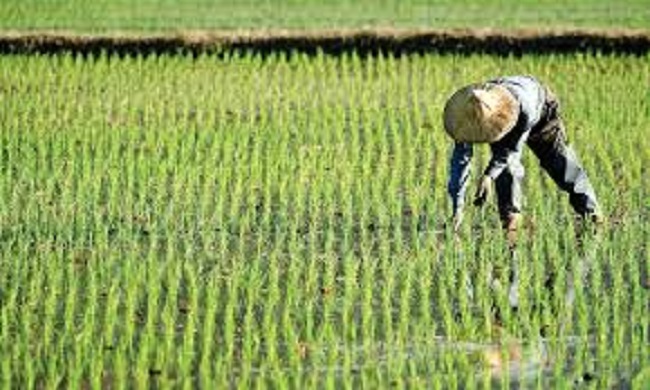By Gao Yuncai, Chang Qin, People’s Daily
The average per capita disposable income for Chinese rural residents reached 5,398 yuan ($839) in the first quarter this year, up 16.3 percent in real terms, according to statistics released by the National Bureau of Statistics (NBS).
Rural economy has maintained sound operation, with the value added of the country’s primary industry exceeding 1.13 trillion yuan, up 8.1 percent year on year.
“I made a right decision to return home and start a business, given the huge development potential of the countryside,” said Sun Zhongling, owner of a ranch in Sunzhuang village, Guandu township, Zhongmu county, central China’s Henan province. Establishing a stock cooperative and inviting agricultural experts to the village for training sessions, the man is quite confident about his future development.
According to Liu Jianyu, a villager that works for the ranch, he can earn 50,000 to 60,000 yuan a year. Now, the ranch has become an important vegetable supplier for Zhengzhou, capital of Henan province, and is offering 400 jobs for rural residents.
It is estimated that every startup project initiated by entrepreneurs returning to rural areas can create 6.3 stable jobs and 17.3 flexible jobs, said Ye Xingqing, director-general of the Research Department of Rural Economy of the Development Research Center of the State Council. A total of 19 million returnees to the countryside have secured jobs near their homes, he added.
As technological innovation is upgrading agricultural production, the income of many farmers is on a rise. In the fields of Qingyihu township, Shuyang county, east China’s Jiangsu province, 30 agricultural drones are employed by grain grower Teng Yunfei, who has contracted over 13,000 mu (867 hectares) of land. Thanks to technology-backed grain-growing, the man made more than six million yuan last year, with each mu of land generating an income of 500 yuan.
Green planting is also benefiting many farmers including Zhang Jian from Wangji township, Siyang county, east China’s Jiangsu province. By replacing chemical fertilizers with organic fertilizers, and pesticides with sticky traps and bug zappers, Zhang’s peaches were certified as green products and put on the shelves of major supermarkets in Shanghai. “Greenness is a golden signboard that makes our peaches more valuable,” Zhang said.
Chinese people’s demand for quality and green products is growing even stronger as they embrace a better life. It is reported that over 97 percent of agricultural products have met or exceeded quality standard in the first three months of this year, and there were over 53,800 types of green, organic and GI (geographical indication) products available on the market.
In order to better meet the demand of the upgrading consumption, the country will advance the green development of agriculture from a higher level and on a broader range, said Zeng Yande, head of the Department of Development and Planning of the Ministry of Agriculture and Rural Affairs.
Apart from green products, improved rural environment is also leading to prospering rural tourism. For instance, a modern agricultural park in Cangxi county, southwest China’s Sichuan province, is visited by nearly 10,000 tourists on a daily basis. “There are 86 B&Bs and hotels in the township, and all of them are almost fully booked,” said Duan Yongxi, a local villager who runs an agritainment facility and had once received more than 200 tourists a day.
Duan’s agritainment facility is jointly run by himself and his son and daughter-in-law who quit their urban jobs and returned home. “It’s really great to operate the business together with my family,” he told People’s Daily.
Duan is not the only one that’s benefiting from the business. By running B&Bs and restaurants, each local household has increased annual income by 30,000 yuan on average.
The rapid growing leisure agriculture is expanding the functions of the countryside and increasing added value for relevant industries. Last year, the sector generated total revenue of over 600 billion yuan, and 150 tourism routes and 200 tourism villages will be built this year.
The high-quality development of agriculture is injecting new vitality into the countryside and driving the income growth for farmers, said Zhang Hongyu, deputy dean of the China Institute for Rural Studies, Tsinghua University.
Giving priorities to ecological progress and promoting high-quality development will only make even stronger impetus for increasing farmers’ income, he added.





